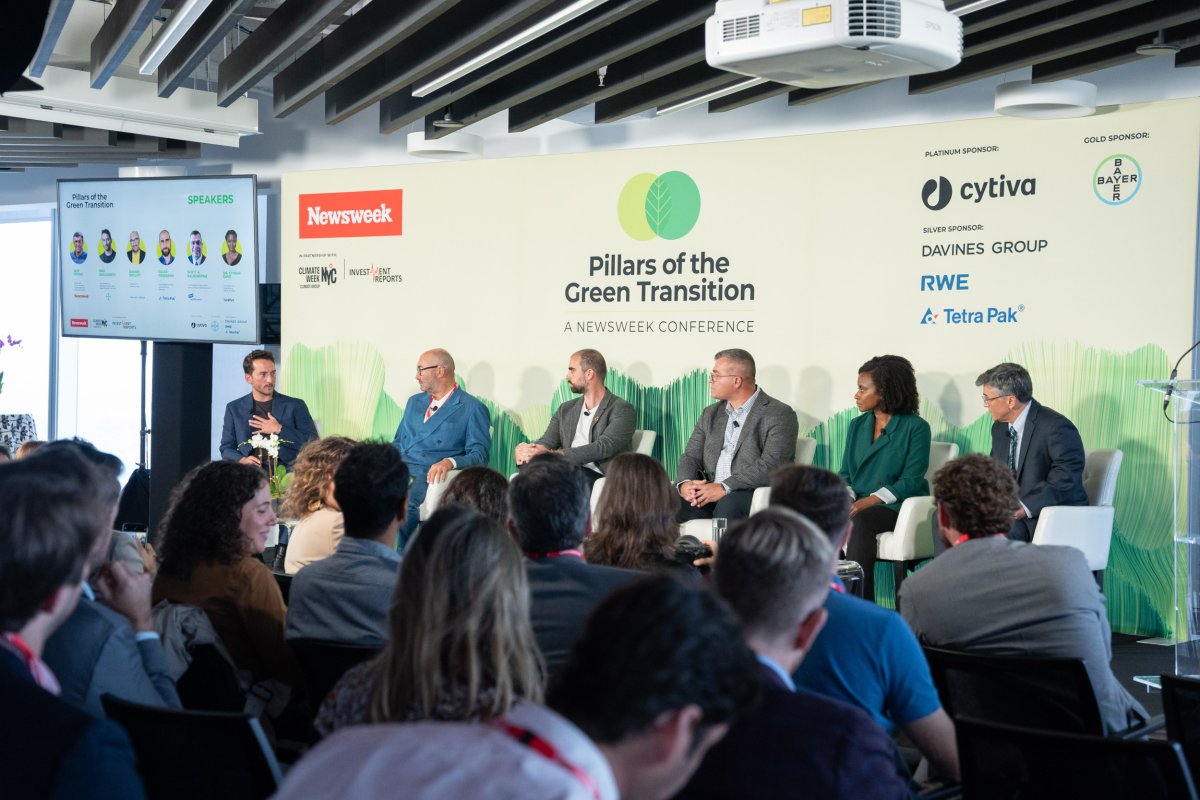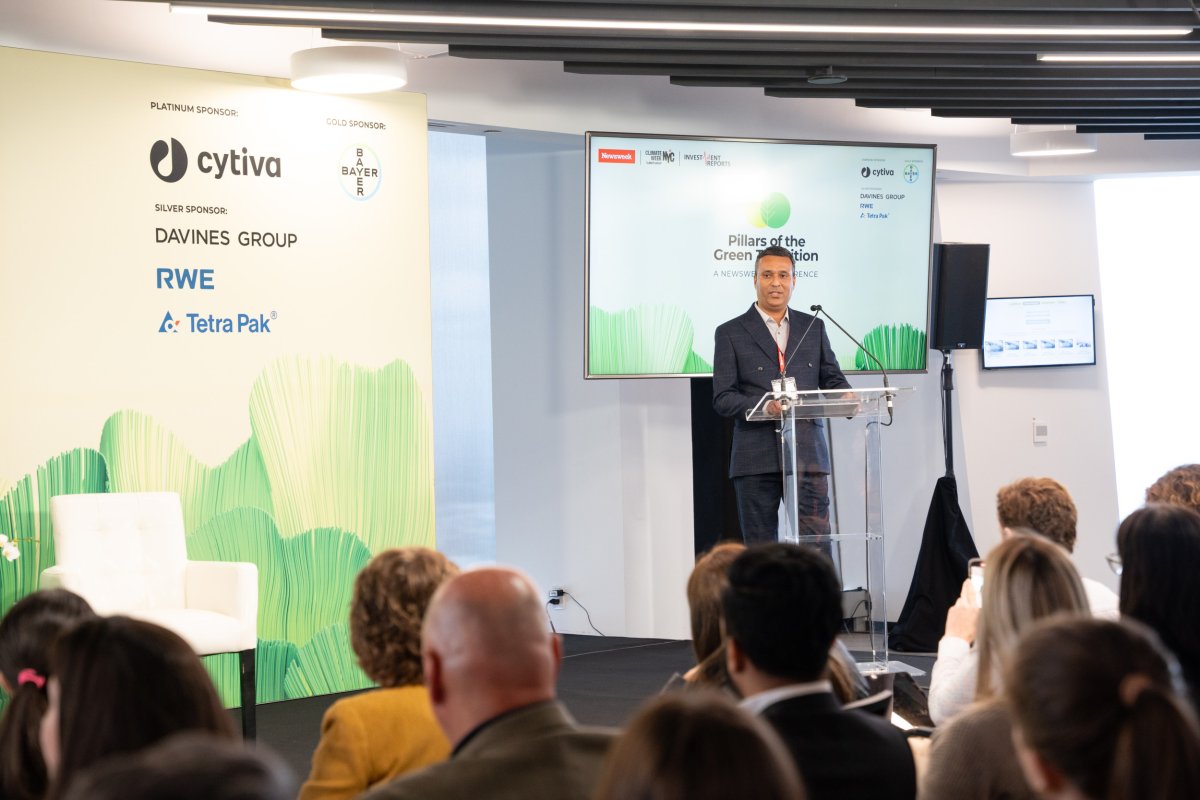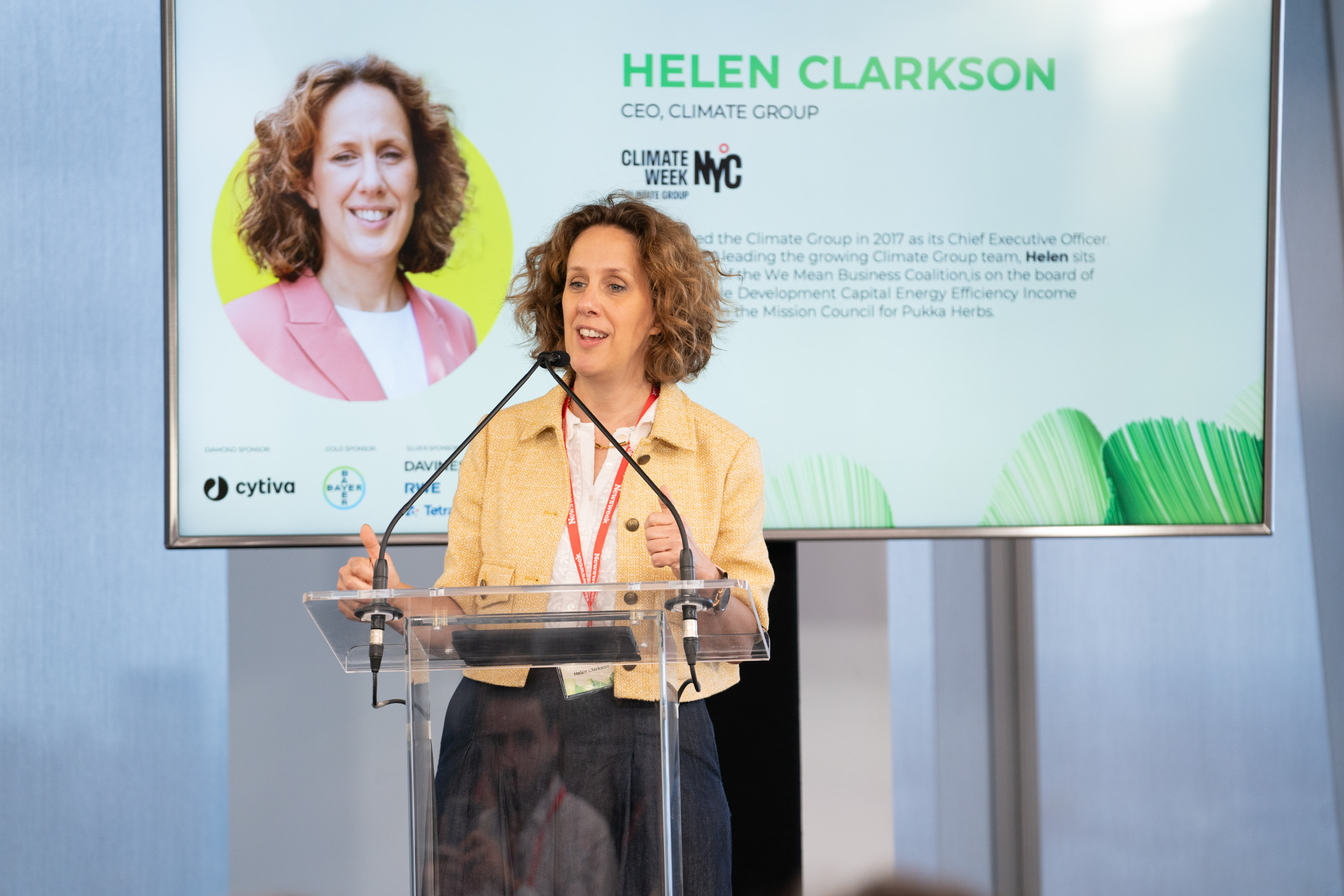During a recent roundtable event, leaders from various sectors, including biopharma, beauty, agriculture, packaging, and sustainable fuels, gathered to discuss innovative strategies for reducing carbon emissions across the supply chain. The session emphasized collaboration and practical measures to address environmental impacts.
Climate Group CEO, Helen Clarkson, kicked off the event by highlighting this year’s Climate Week theme: “It’s Time.” Clarkson urged companies to start working towards their long-term goals for 2030 and 2050 immediately. “We can’t waste any more time,” she stated, stressing the urgency for action in every sector.

Yekaterina Gyadu
With Silver sponsors, including Davines, Tetra Pak, and RWE, the discussion unveiled common themes and challenges across sectors as companies shared their emissions data. Emissions are categorized into three scopes: Scope 1 (direct operations), Scope 2 (energy purchased), and Scope 3 (supply chain activities). Most emissions typically fall under Scope 3, which Davines Group’s Bollati referred to as a significant challenge that necessitates collaborative solutions.
Bollati explained, “The planet operates as one living organism, meaning our actions have global consequences.” Collaboration emerged as a key point throughout the dialogue, as each company works within a larger value chain to create consumer products. Understanding and measuring impact fosters interdependence among businesses.
Raubenstine from Perdue emphasized the importance of engaging with the supply chain, from farmers to consumers. This holistic approach not only supports farmers but also ensures higher quality products and promotes climate initiatives. Bayer partners with Perdue, offering digital ecosystems that help farmers adopt sustainable practices while maintaining profitability.
Dougherty from Bayer noted that regenerative farming can significantly reduce emissions by improving practices that sequester carbon and enhance soil health. He advocates for a collective effort across the agri-food industry, engaging all stakeholders—from farmers to consumers—in sustainability efforts.
Raubenstine added, “Listening to farmers and educating everyone in the supply chain on climate actions is vital.” For instance, understanding consumer habits can help reduce packaging waste. Each participant has a role to play in climate action.

Yekaterina Gyadu
Dougherty concluded that agriculture must be integral to climate solutions, given its significant contribution to global greenhouse gas emissions. However, it also holds the potential for positive impact.
Tisserand of Tetra Pak described his company as the “hidden middle” in agriculture, creating packaging solutions that reduce food waste and energy consumption. He advocated for government support in the transition to sustainable practices within food processing.
Conversely, Twelve is working on an innovative carbon cycle that transforms CO2 using renewable energy and water, creating sustainable fuels for transportation. Co-founder Etosha Cave expressed optimism for the future, citing historical human success in solving major challenges.

Yekaterina Gyadu
“Together, we can tackle these planetary issues again,” Cave stated, emphasizing the collective mission across various industries.
